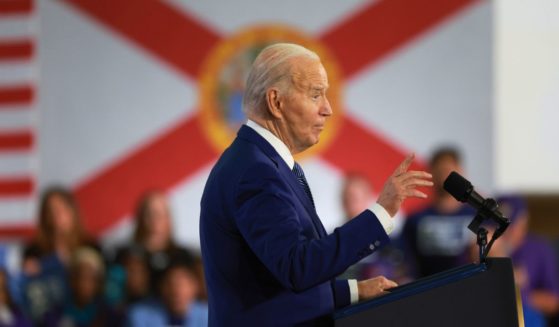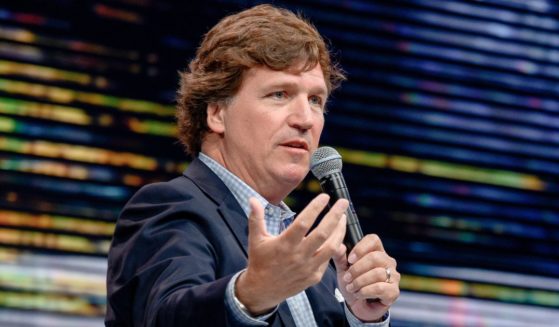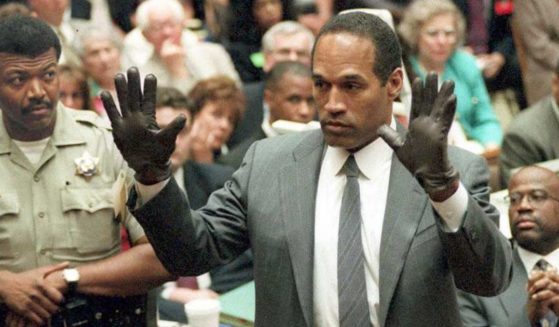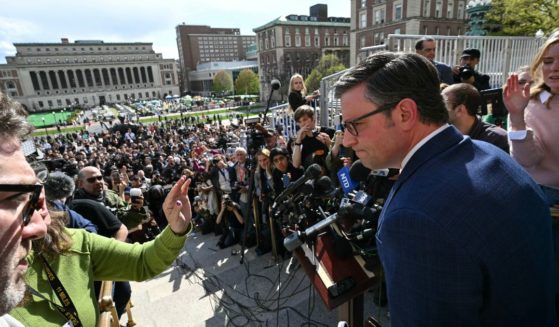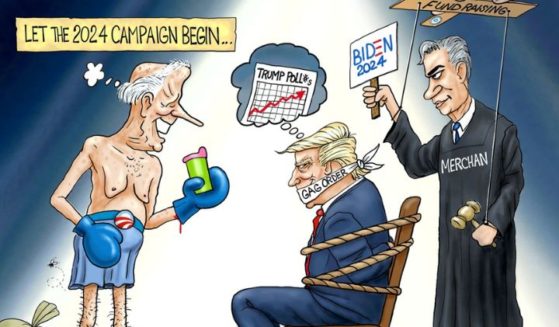New 'Inclusive' CDC Guide: Don't Call People 'Alcoholics,' 'Smokers,' 'Uninsured'
Earlier this month, Centers for Disease Control and Prevention Director Dr. Rochelle Walensky gave us a pretty good idea of how woke President Joe Biden’s CDC was going to be when she urged “pregnant people” to get the COVID-19 vaccine.
“The rise in cases, vaccine hesitancy, and the increased risk of severe illness for pregnant people make vaccination against #COVID19 more urgent than ever,” Walensky tweeted Aug. 11.
“Read why @CDCgov recommends that pregnant people should be vaccinated against COVID-19.”
The rise in cases, vaccine hesitancy, and the increased risk of severe illness for pregnant people make vaccination against #COVID19 more urgent than ever. Read why @CDCgov recommends that pregnant people should be vaccinated against COVID-19. https://t.co/SAVvJS9Dgj pic.twitter.com/ufxzcLPy83
— Rochelle Walensky, MD, MPH (@CDCDirector) August 11, 2021
One guesses fewer individuals read the CDC’s guide as to why pregnant women should get the COVID-19 vaccine than those who read the words “pregnant people” and stopped right there. As one responder put it: “You just said ‘pregnant people.’ And I’m expected to trust you on science?”
Well, now the CDC has a whole list of preposterously “inclusive” terms. There may not be anything quite as jaw-droppingly obnoxious as “pregnant people” in there — but rest assured, if you’re a health provider and felt uncomfortable calling someone an “alcoholic,” “elderly,” “foreign-born” or a “smoker,” the CDC has just the language guide for you.
The guide to “preferred terms” isn’t dated, although the first time the page was indexed on the Wayback Machine — which archives past versions of webpages to check when they were uploaded and if alterations were made — was on Thursday.
Fox News reported on the guide on Saturday, noting that it was meant to engender “health equity” and “inclusive communication.” In a page titled, “Key Principles,” the CDC explains that providers should avoid using “adjectives such as vulnerable, marginalized, and high risk.”
“These terms are vague and imply that the condition is inherent to the group rather than the actual causal factors,” the page reads. “Consider using terms and language that focus on the systems in place and explain why and/or how some groups are more affected than others. Also try to use language that explains the effect (i.e., words such as impact and burden are also vague and should be explained).”
As for the guide: “Language in communication products should reflect and speak to the needs of people in the audience of focus,” it reads. “The following provides some preferred terms for select population groups; the terms to try to use represent an ongoing shift toward non-stigmatizing language.”
It’s broken into several sections, including “Corrections & Detentions,” “Disability,” “Healthcare Access & Access to Services and Resources” and “Lower Socioeconomic Status (SES).”
All of the sections follow the same format. There’s a list of presumably stigmatizing terms labeled, “Instead of this…” Then, corresponding “inclusive” alternatives are included under a list labeled, “Try this…”
We start ridiculously, as the first stigmatizing term is “inmate.” Try this instead: “People/persons who are incarcerated or detained (often used for shorter jail stays or youth in detention facilities).”
Predictably, you’re not supposed to use the term “disabled” anymore. Surprisingly, its politically correct replacement, “differently abled,” is also verboten.
Instead, go with, “people with disabilities/a disability” or “people who are deaf or hard of hearing or who are blind or have low vision.”
“Avoid using ‘vulnerable’ when describing people with disabilities,” the guide states. “CDC is aware that some individuals with disabilities prefer to use identity-first terminology, which means a disability or disability status is referred to first; for the purposes of these guidelines, CDC promotes person-first language.”
We get into similar territory when talking about “alcoholics” or “smokers.” Instead, it’s “persons with alcohol use disorder” or “people who smoke.”
“The uninsured” should now be referred to as “people who are uninsured/people who are underinsured/people who do not have health insurance.” Also please note: “Underserved relates to limited access to services that are accessible, acceptable, and affordable, including healthcare. Do not use underserved when you really mean disproportionately affected.”
And then there’s immigration status and place of birth, unsurprisingly a dense thicket of wokeness.
“Illegals” and “illegal immigrants” are both problematic. No surprise there. However “foreigners” and “foreign-born” also fall under stigmatizing language. Instead, you should use “non-U.S.-born persons/foreign-born persons.”
“Non-U.S.-born or foreign-born persons may also be used to refer to individuals born in a country other than the U.S., similar to the international migrant concept,” the document notes.
Also, the word “‘alien’ (person who is not a citizen of the United States) may be stigmatizing in some contexts and should only be used in technical documents and when referring to or using immigration law terminology.”
Race and ethnicity doesn’t contain many surprises, except for this stigmatizing construct: “The [racial/ethnic] community (e.g., ‘the Black community’).” No communities allowed — not even politically uppercase communities. Instead, it’s all “persons.”
If you don’t have a Kinko’s nearby, don’t worry — the CDC didn’t forget about you either. “Rural people” should now be “people who live in rural/sparsely populated areas” or “residents/populations of rural areas.” Also, “elderly” or “senior” are also stigmatizing terms; use “older adults or elders” instead. Or, you can simply go this route: “Numeric age groups (e.g., persons aged 55-64 years).”
I searched the document up and down but didn’t find any entry in which “outraged taxpayers” are defined as “people who pay taxes who are unnerved and furious that this was a priority for the CDC.” All this talk about “person-first language” and there’s absolutely nothing here that describes me.
According to the National Archives, the CDC can trace its lineage to 1942, when the Office of National Defense Malaria Control Activities was founded during World War II. After the war, it became the Communicable Disease Center in 1946. It went through various name changes until 1973 when it became the Center for Disease Control (with a singular “Center.”)
In 1992, it took on its current name, the Centers for Disease Control and Prevention (“plural “Centers”).
All of which is to say is that the federal government’s health care bureaucracy has long had an unhealthy fascination with splitting hairs over terminology.
At present, though, the CDC is still in the midst of the greatest public health emergency its faced during its 79 year history. At some point during this all-hands-on-deck moment, it borders on the obscene that the current administration felt the pressing need for the CDC to inform health providers that they shouldn’t be calling people “alcoholics,” “elderly,” “foreign-born,” “inmates,” “smokers” or “uninsured.”
Sure, the administration may be banging on about the need to reintroduce mask mandates and social distancing provisions. The fact the CDC is using any of its messaging bandwidth right now on this kind of arrant wokeness, however, is indicative of where the administration’s priorities really are.
It turns out “pregnant people” was just the beginning.
Truth and Accuracy
We are committed to truth and accuracy in all of our journalism. Read our editorial standards.




